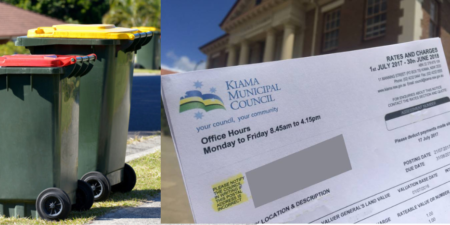THE Independent Pricing and Regulatory Tribunal (IPART) has released a final report outlining upcoming changes to the methodology used to set rate pegs in NSW.
What on earth is a rate peg?
The IPART rate peg determines how much income local councils can generate through rates that are levied on landowners. Most councils generate about a third of their income from rates, which are a form of property tax.
Other income sources include State and Federal grants, contributions paid by property developers, fees and charges for council services, and fines payable for violating regulations that are enforced at a local government level.
In 2023-24, the base rate peg was set at 3.7%. This doesn’t mean that individual ratepayers pay 3.7% more, rather it means that local councils can increase their revenue from council rates by this amount.
Local councils may distribute this increase based on their own policies, so long as they ensure that their total income from rates is not more than the amount determined by the rate peg. For instance, rates may be calculated differently for residential properties than farmland.
Local councils provide a range of essential services and facilities that communities need to function. However, many submissions made to IPART highlighted that local community members feel uncertain about the efficiency of their local council.
Others expressed further concern that substantial increases to rates will cause increased pressure on households and businesses that are already struggling to pay the bills.
Why are things changing?
The IPART review was brought about by concerns that rate pegs are being set too low, that they are determined based on outdated data, and that the current methodology does not address the differences between different types of councils (i.e. rural, regional and metropolitan).
This has resulted in an increase in councils needing to apply for a special variation (SV) as the rate peg is not rising in line with inflation. This adds an extra administrative burden that is costly. 86 councils had SV applications approved in 2022-23, the largest of which was 1.8% higher than the basic rate peg for that period.
What does this mean?
It is likely that the outcome will result in a higher rate peg in many Local Government Areas (LGAs). Of course, we can’t know for sure what the full impact will be for ratepayers until the new methodology is put into practice.
For reference, IPART’s new methodology would have put the base rate peg up by an extra 1.2% last year and an extra 0.5% this year. Whilst this doesn’t mean individual rates would go up by that exact amount, that increase is passed on to someone – and currently many households don’t have anything extra to spare.
IPART intends for changes to take place in 2024-25, but this may be delayed to 2025-26.
Future directions
Perhaps most interesting point IPART have made in their draft paper is that the actual financial model that councils are operating under requires review. Is it reasonable that ratepayers pay a large proportion of increases to operating costs – should other sources of revenue be explored? There has also been feedback from ratepayers that they aren’t convinced that councils are operating efficiently, and there’s discussion of increased transparency and productivity measures. It will be interesting to see how this unfolds.
CPSA is concerned that concessions for pensioners do not automatically increase in line with rates. Currently the general rebate is set at a flat $250 regardless of changes to costs of living and actual council rates. This concession is not indexed in line with CPI and has not changed since it was introduced in 1993.
The NSW Government funds 55 per cent of the pensioner rebate, while councils pay the remaining 45 per cent. The Government’s share of the funding is provided to councils, which administer the entire rebate to eligible ratepayers. Some councils provide a higher rebate at their own cost.
CPSA strongly supports a formal review of concessions for council rates, which should be indexed regularly. Read our full media release here.
Find out more about pensioner council rate rebates here. You will need to contact your local council to apply.
Other articles
